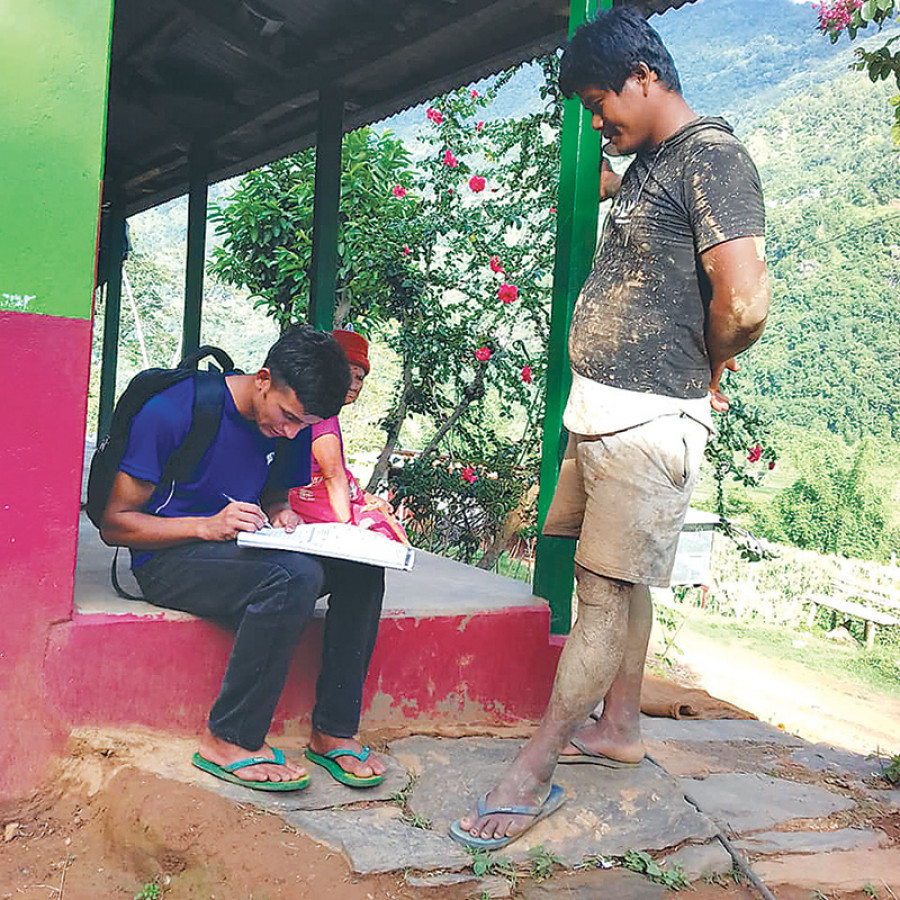Editorial
The great headcount
The bureau must sensitise the enumerators on the need to appreciate the differences.
The government has asked the Central Bureau of Statistics to come up with a timetable for completing the 12th Nepal Population and Housing Census 2021 before Dashain. The fact that the once-in-a-decade count gives a temporal perspective to the social and demographic situation of the country means that the census must be conducted during a fixed interval, and we cannot afford to take a long break. But a census in the midst of a pandemic is like a double-edged sword, as questions remain whether it is possible to conduct it effectively even as a third wave is possibly just around the corner.
A census is a gargantuan task that needs years of preparation, weeks of data collection, and months of processing before the final data is out. Although the planning took off around 2018, the last and crucial phase of the preparation was hit by the pandemic, leaving the bureau unable to complete the preparation. If we listen to health experts, a door-to-door census can prove lethal, as it involves enumerators visiting every household in the country to collect data at a time when most of the people are yet to be inoculated against the coronavirus. The programme itself could fall into disarray if it has to be aborted mid-way, resulting in a huge loss of financial resources and work hours.
Apart from technical know-how of data collection, the bureau must be able to sensitise the enumerators on the need to appreciate the huge linguistic, ethnic and religious differences, failing which there is a possibility of the census giving out an inaccurate representation of the diverse nature of the country’s population. The 2011 census is a case in point, as it was considered to have failed to capture the diversity. But as of today, the bureau is yet to train thousands of its enumerators on the basics of data collection itself, let alone lecturing them on sociology.
The upcoming headcount is particularly significant as it is the first to be conducted under a federal system. It is expected to be essential in institutionalising federalism, giving a comprehensive picture of the social living condition of the people throughout the country, allowing federal, provincial and local governments to come up with clear and concise plans for development. Even as the bureau gets back to work amidst uncertainty, it is important to ask what happens if the census cannot take off at all or if it has to be aborted right in the middle of the work. Furthermore, the bureau is yet to clarify if it is in a position to adopt alternative measures to conduct the census in a situation where doing it physically is not a possibility. As we know it, conducting data collection online is not yet an option for us as we are yet to bridge the digital divide.
Globally, experts have expressed concern that a census in the middle of a pandemic can capture a distorted picture of the country as there have been acute changes in the living standards of the people due to the alterations brought by Covid. However, experts also opine that the census could also be the best way to gauge which demographics or areas are hit by the pandemic, allowing the government to know exactly where to direct its funds and services. Even as bureau officials mull the possibility of conducting the census, they must consider how they are going to factor in the changes, both temporary and permanent, brought about by the pandemic.




 27.41°C Kathmandu
27.41°C Kathmandu














